My Medical Experience in Merida
Editor's Note: The following is a story told by Mitch Keenan, the long time owner of Mexico International, a local real estate agency. He's not talking about real estate here, though... he's talking about health care. In the following paragraphs, he recounts his experience of surgery and recovery at the Star Medica Hospital in Merida. We thought you might be interested in his first-hand account.
Admission to Surgery in Mexico
On Monday December 13th, I was admitted to Star Medica hospital here in Merida to undergo surgery for a growing, terribly uncomfortable and unsightly hernia, the result of a misbegotten emergency appendectomy in the USA in September 2009.
It gives me great pleasure to report that the surgery and all the procedures before and after surgery went exceedingly well. The success is due, in no small part, to my excellent surgeon, Dr. José Luis Araujo Barrera and his wonderful staff. Dr. Jose Luis was strongly recommended to me by several close friends here in Merida. They swore to his genius as a doctor, oncologist and gastroenterologist, and in retrospect, I can see that I was very fortunate to have been directed to him.
What amazed me repeatedly during the process was the difference between the standard of health care I received here, in Merida, and the healthcare services I received in the USA. The following is the story of those differences.
Upon arriving at the Star Medica hospital Monday morning at 9:00 AM, I completed some simple paper work, delivered my insurance letter from GNP confirming their approval for the procedure, signed for my remote controls and was immediately escorted to surgery preparation.
In the prep room, my clothes and personal belongs were gathered, sealed and I signed for them. I was given a mild sedative and taken upstairs. I was gently transferred to another bed without having to get up or be lifted. Remaining comfortably on my mattress, I was gently rolled from one gurney bed to the other. I found myself in the surgery room and remember seeing the enormous and bright surgery lights. And then it was "Lights Out". That is all I remember until I awoke in my private room later that afternoon.
The Aftermath
The hernia was rather large and so I am taped up pretty well on my right side. There was also a drainage tube inserted just below my incision, allowing excess fluids to escape (something that had not been included after my surgery in the USA). At Star Medica, I received daily injections of pain relievers and antibiotics. My blood pressure, temperature and heart beat were checked several times a day. My doctor visited me at least once a day, as did his assistant. When I mentioned that I did not sleep well the first night, I was given some drops the following night and slept like a baby, awakening refreshed (not drowsy) the following morning.
The original plan had been for me to be released on Tuesday but because there seemed to be a lot of drainage, my doctor held me in the hospital for another 36 hours to keep me under the watch of the hospital staff.
I was finally released after three days. I asked my doctor when I would have my stitches removed. He replied that there had been no external stitches or staples to bind the incision. He explained that the external wound had been sealed with a type of plastic surgery in order to reduce the scarring effect. Wow! Go figure...I hadn't even asked for that.
Inconclusive Tests
My experience in the USA was not quite so positive. To give credit where credit is due, the surgery undoubtedly saved my life. However, the way the surgery was conducted and followed up nearly killed me.
A few months ago, I was driving to dinner with friends. En route to the restaurant, I pulled the car over to the side of the road and said, “Guys, I don’t know what is wrong with me but I have to go back to the house. I feel clammy, kind of dizzy and feel sick to my stomach.” We returned to the house and I collapsed on the guest bed. I had gas and cramps. I was dizzy and just wanted to stay flat on my back with a cold compress over my eyes. I tried drinking Pepto Bismol, nibbling crackers, sipping water, anything to relieve the gas. Finally, I ended up spending a very uncomfortable night, tossing and turning in pain and vomiting.
The next morning, my friend Gary drove me to the hospital. At admission, I told the nurse I thought I was having appendicitis. I waited an hour for a doctor and explained again. They ran blood test. They probed and pushed and examined. Because the pain was situated high on my right side near my rib cage, there was concern that it may not be my appendix. The area was indeed swollen, tender and it was likely I did have an expanded “something”. They explained to me it is difficult to know for sure if someone is having an appendicitis attack. They had me drink two containers of contrast dye and sent me to get an MRI. Three hours later, the tests were non-conclusive and the hospital was considering sending me home.
I had by now spent nearly eight hours in considerable pain. I had been in the hospital that entire time, hoping for something, anything... even an aspirin would have been appreciated. Finally, the hospital staff was planning to sending me home because the surgery docket was full, it was getting late and there were too few surgeons on staff. I nearly cried, and insisted that something must be done! There was no way I could endure this pain for another night. No way!
Time to Operate
A nurse who had been attending me all day decided to call in some favors. He called over to surgery and got a few surgeons to come over and take a look at me. They examined me, examined my blood work and MRI results. In their opinion, surgery was indicated and they decided to operate that evening. We waited for an opening in the surgery room. By now, I had now been at the hospital for over eleven hours, with pain that had me literally doubled over.
On the wheel chair ride over to surgery I started to shake uncontrollably. At pre-op the nurse started peppering me with questions: “Why are you shaking? What drugs are you on? Are you a junkie? An alcoholic? What have you been taking?” She accused me of having DT's and withdrawing from alcohol. She was mean, sour and ugly about it. I told her, through chattering teeth, that I was not a druggie nor an alcoholic, that I was in terrible pain and I was pretty sure my appendix was about to burst.
She stabbed me several times with the IV. It was hard to get the IV into my vein because I was shaking so violently. She demanded I hold still so she could get the IV started but I had no control over my shakes. (In fact, I still have faint bluish bruises on my arm from over a year ago where she kept stabbing at my vein). Finally, another calmer and more gentle nurse got the IV inserted.
(Later we understood that I was shaking and vibrating because I was going into shock from the extension of my appendix into my liver. My appendix had gotten twisted upwards and was extending up into my liver, which is why the pain was located higher on my right side than is typical for an appendicitis.)
Finally, in surgery, my appendix was removed by a laparotomy procedure. Most modern hospitals and clinics remove the appendix by laparoscopy. My surgeon here in Merida explained that the laparoscopy procedure is what he would have employed. It is less invasive, heals faster and leaves almost no detectable scar.
Post Surgery in the USA
The day after my surgery in the USA, I was released from the hospital. No drainage tube had been installed. I was given a large quantity of Vicodin painkillers, antibiotics and sent home with instructions to return in a few days to remove the staples.
Three days later my entire incision started leaking vast amounts of blood and infection. The smell was overwhelming and my friend Dennis had to leave the room – nauseated from the rotten-egg stink of the infection. I stripped and stepped into the shower, dizzily trying to maintain consciousness and clean myself. Dennis called the hospital and I went back to the emergency room.
In the emergency room, I underwent a terribly painful procedure. All of the staples were removed from the incision without any painkillers being administered. Additionally, all the sub-dermal sutures were cut, the wound was irrigated and deeply cleaned with cotton and Q-tips. It was a painful, long and intensely unpleasant experience. I nearly passed out a couple of times and they gave me a few more Vicodin as they continued. Finally, the entire wound had to be deeply packed with moist cotton and re-taped.
I was informed that the wound would not be re-stitched due to fear of re-infection. My new instructions were to unpack the wound daily and to repack it with moist cotton – and that the cotton must be pushed as deeply into the wound as possible. I won’t even dwell upon how painful that daily process was. My friends and I repeated this procedure for nearly three weeks. Everyday, I would pop a couple of Vicodins, shower, remove the old dressing and then lie on my bed as my partner, Manolo, would push the new cotton dressing, as deeply as possible into my wound, using a probe, until neither he nor I could stand the pain and discomfort.
I was also extremely disheartened to see the ugliness of the wound. The scar was bad enough but the unsightly, puffed out, football shaped lump on the front right, lower quadrant of my abdomen was difficult to deal with. And it was growing bigger everyday - making me appear lopsided and odd.
Back in Merida
Finally, back in Merida, I went to see Doctor Jose Luis at Star Medica. He told me not to worry. He told me that he would take care of getting my wound properly and professionally fixed, a promise he made good on as reported at the beginning of this story.
So now, after my second and much less invasive surgery, I am home. The hospital sent me home with lots of pain medicine so I am also in a pretty good mood! I have strict orders to stay home until I am healed, and after what I have been through, I intend to follow those orders until I am free to roam the planet again.
Comparing the Costs
The entire bill for everything at Star Medica, including a private room for 3-days, was approximately $50,000.00 MN or about $4045.00 USD. My insurance covered all but my small (less than $1000 USD) deductible. My insurance company in Mexico is GNP and I am very happy with their service. My agent is Jesus Sosa. He can be reached at: 999-944-1389.
Response from Friends
Since I have told this story to a few people, I have been getting some comments back from friends in email. Some of them are definitely worth sharing and they follow:
I just saw my Dallas dentist yesterday. He noticed the two new crowns that Dr. Javier Camera Patron put in and said they looked completely professional and well done. Cost of Mexico Dentist Installed Crown: $180. Cost of Dallas Dentist Installed Crown: $1,800. No typo ---- TEN times as much money. For the same exact thing. Incredible. -CC
Dr. Araujo really does wonders!! I have had surgery with him twice and the treatment before, during and after surgery was "WOW!" I also have my plastic surgery (invisible) scars, making him a plus!! –AMT
Isn't Dr. Araujo just the best??? As you say in your letter--- the guy is a genius and a good soul. –JMT
As to Jose Luis, he was my surgeon and I would have no other. He removed the cancerous tumor I had in 2004. I will never be able to explain how I felt having him as my doctor.
I feel just as you do about him. Not only is he a great doctor, surgeon and healer, but he is a marvelous person. You are in great hands.. –GF
My recent stay at Clinica De Merida was completely unbelievable in the level of care. My doctors Colome and Garcia surely saved my life and their follow-up care has been amazing. I have called their direct cell numbers and spoken with them with questions after I have been home. Amazing! That would never happen in the USA. And because of the nature of my emergency entrance into the hospital, my insurance (Alianze) picked up 100% of the cost, including my follow-up doctor visits and all my medications, my private duty nurses... everything! We are so fortunate to be here where this level of medical care is so readily available at such unbelievably low prices......VIVA MEXICO!!!! -SW
I too have had several medical experiences involving hospital stays... all have been wonderful. I would never think about going to the United states for medical care. It is superior here... with caring doctors and nursing staff. -TK
I am glad you had a good experience in the hospital. Doctor Araujo is great. He also was the one I used two years ago when my appendix was removed! We are blessed with Merida doctors! -HP
In Summary...
So there you have it folks! A recent, first hand experience of the difference between medical care in the USA and in Merida, Mexico. If you are considering moving here, but worried about the level of medical care in Mexico, don't worry about it. You'll be surprised at how good it is. If you are considering elective surgery, consider Merida.




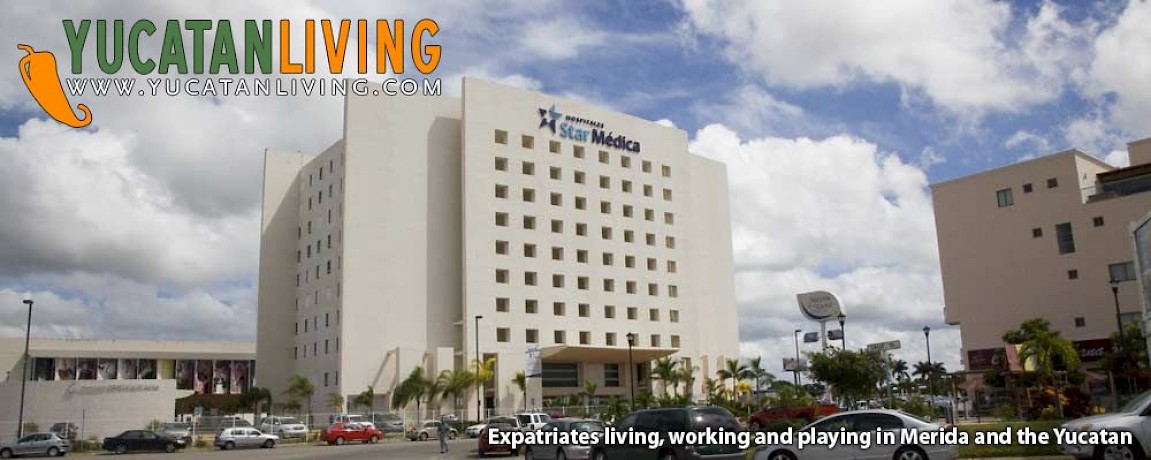



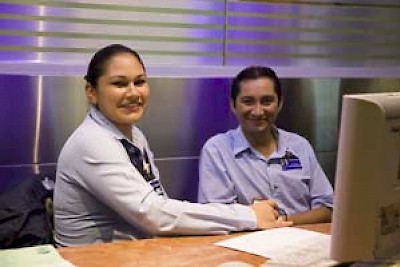
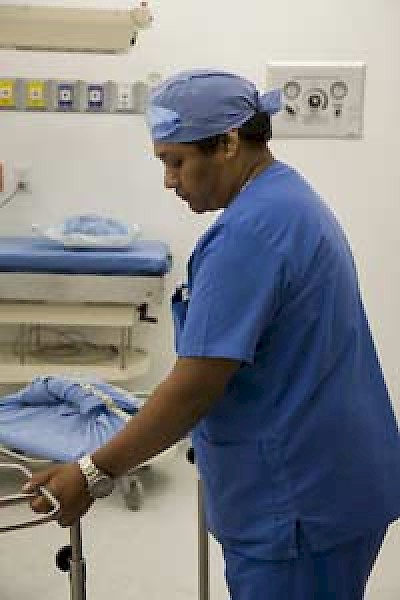
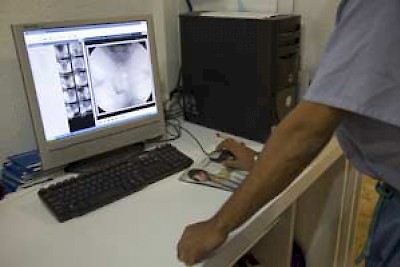
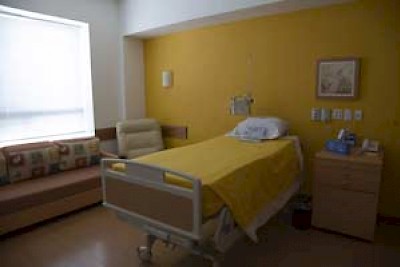

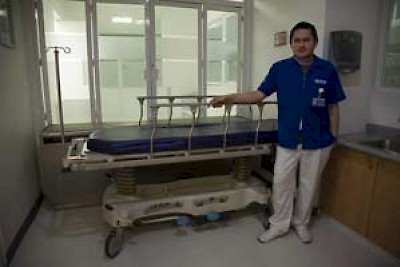

Comments
Esme 14 years ago
For what I spend each month on US health insurance premiums alone, in Merida I could pay for private health insurance AND rent a 2-bedroom house.
I'm under 50, healthy, and self-employed.
Current insurance: $278/month with a $5000 deductible per year
Mexican insurance (Allianz): $72/month with $400 deductible per incident
Some costs I've checked out:
Root canal:
• US: $845
• Merida: $180
Breast MRI with contrast:
• US: $3500
• Merida: $487
This is one of the biggest reasons that I'm seriously considering leaving the US.
Reply
Brenda Thornton 14 years ago
Does anyone know if there is an immunologist in Merida, and if so, the contact information for that individual.
Thanks for your assistance.
Reply
Steven Fry 14 years ago
Mitch,
Your pre-op stories have an almost mirror image quality to my appendicitis experiences in the late 1980's at what was supposed to be a top-ranked hospital in the US. In the middle of a 10 mile hike in Colorado's mountains, I began experiencing nausea, dizziness, and growing pain. I staggered off the mountain, laid in bed for 5 hours at home getting worse by the hour, and went into the ER at midnight. Even with a highly elevated white-count, high fever, and tons of lower right quadrant abdominal pain, the genius US doctors could not see beyond a prior history of Acute Ulcerative Colitis (even though I had not had a colitis bout in years, and the colitis was located on the left side). The dopey docs loaded me up with steroids, and sent me home. The hospital's top pathologists (two older docs from the bygone era when doctors were trained to think critically, and to listen to patients), happened to see my test results the following morning, and both commented that even a first year med-student of their era could clearly see that I had an appendicitis, and that steroids were exactly the wrong treatment, since the steroids masked the underlying problem. Fortunately, my appendix blew it's plug back into the intestine, and it drained on it's own. I had a re-occurrence about 2 years later, and yet a different goofy ER doc declared he was sending me home, because I was not jumping off the gurney in pain. (I was about 10 years into meditative practices and bio-feedback, and was using these techniques to block the pain - and the anti-peristaltic drugs they had given me shut-down peristalsis left me with substantial-but-manageable pain.) Dopey Doc #2 declared that since I had only excruciating sub-sternal pain, and that I had not had 24 hours of prior nausea, and that I was not writhing in pain, it could not possibly be an appendicitis. This time I demanded to see a surgeon. The surgeon was another old-timer (over 60 years old), and he listened to my description of symptoms, palpated me for about 1 minute, and declared that he was taking me up to surgery immediately. This fine physician said afterward surgery that my appendix was about to burst, but was twisted around to put it in an unusual position, close to the liver. He also noted that the appendix had extensive scarring from previous episodes blow-ups, proving the prior Doc's errors. Having taken most of the same background University courses with 100's of US pre-meds, and having then taught those courses, I believe that the US systems have produced 2-3 generations of physicians who only wanted to memorize what they needed to pass tests, did not learn to think, and do not know how to analyze problems. These students were far more interested in the status and salaries they could attain than they were in learning or in developing problem solving skills. They were taught to not listen to patients, because "patient's lie", "patient's complain", and "patients tell you lots of things that have nothing to do with the real problem". My brother-in-law confirmed exactly these things in a series of conversations spanning 2 decades, where he observed that "the last time I had to really think was in an undergraduate Physical Chemistry course, 20 years before". He noted that his time as the heads of 3 different universities' Medical Education, Residency, and medical research programs proved to him that the US medical education system was deeply mired in 4 decades of simple memorization requirements, and that except for the pathologists and some unusual internists, most physicians are just not capable of listening to an array of patient's stories, unable to sort out the wheat from the chaff, and unable to recognize the symptoms to make decent diagnoses of anything that is even marginally non-routine = PDX medicine. Out of all the stories listed above, the swollen finger with the Staph aureus infection is such a no-brainer, that it demonstrates just how low US medical standards and US medical teaching levels have sunk. Just like the rest of the US education system that turns out graduates that rank 21'st to 28'th in the world in academic achievement, down with the poverty stricken Russians & Bulgarians - worst in the "Developed World", the US medical training programs have been churning out low-quality doctors for the last 4 decades. This means that regardless of all the huffing and puffing about malpractice issues, insurance company pressures, and other various and general excuses, the US simply has a huge population of poorly trained and poor quality physicians, who are trained to simply parrot what they memorized, and to cover for each others' ongoing mistakes and basic incompetence.
Post Script: My very talented brother-in-law educator-physician finally left medical school teaching behind and went into private practice after 20 years of fruitlessly battling to improve education practices at 3 different highly-ranking US medical schools. The point of all this is not bitterness, but that if you find a fine diagnostician who listens to you and provides excellent care, literally, hang-onto them for your life's sake.
Reply
lynette 14 years ago
I have to agree with Brenda, having had too many dreadful experiences in US hospitals. It would take all day to recount the near-death episodes of neglect experienced by family members, so I won't. But here's a link to a tale of the "success" of tort reform in Texas. It actually made no difference at all, except to ensure that the most wretched physicians are drawn to practice where their negligence will go unpunished. MUCH of what happens in hospitals is preventable. Simple, thorough handwashing would eliminate much of the hospital acquired infections that can devastate patients. I've sat in ICUs and watched the infection as moved from one room to the next. Hospitals that have instituted serious infection controls have seem rates of staph, c-diff, and the like drop drastically. And that's just infection control. I won't even start on the tale of nursing staff so engaged in "documenting" on their computer screens, they couldn't be bothered to actually see patients, with a resultant code and admission to ICU. I slept at one hospital for three weeks. The "code blues" that were called EVERY morning always started around 5 a.m., when staff finally roused themselves to actually check on their patients.
The American health care system has been corrupted by money. I don't think the pursuit of profit is compatible with good health care. I'm not saying people shouldn't be able to make a living. Of course they should. But the pursuit of profit is primary and results in people being dumped out of hospitals before they should be, in too many "services" being provided because they come with a flat, guaranteed fee, and someone will pay. Patients as human beings are disregarded. It's all about who's going to pay, how much, and how often.
Oh, that link :-)
http://www.newyorker.com/reporting/2009/06/01/090601fa_fact_gawande
Reply
Brenda Thornton 14 years ago
Okay, I know situations at various hospitals differ, but let me tell you about the situation which occurred to me. My husband and I were on our way to dinner three blocks from our home outside Houston, at 6:30 in the evening on Dec. 1, 2010. Traffic is heavy because of a stoplight there in the evenings and the area is well lit, busy and the speed limit is 30 mph. We ended up at the end of the line backed up at the light because people behind us had made left turns into a business and right turns into a side street. A one ton dually extended cab pickup towing an open trailer full of heavy equipment rammed us at what we think was 40 mph, as a bystander reported that he was talking on his cell phone. Our seats collapsed and I had some injuries which could have been very threatening. The paramedics put on a cervical collar which compressed my chest and tied me down to a backboard. I couldn't breathe with that collar on, and it compressed the chest, and I permitted one of the paramedics to persuade me to go to a hospital of her preference...I should not have listened.
I had an eye which felt as though I had been hit in the face with a baseball bat and I knew that was bad, as I had had a very delicate surgery performed on that eye for glaucoma five weeks before and wasn't even permitted to lift anything heavier than a gallon of milk. I was terribly nauseous, felt vomitus in my throat, and my oxygen concentration dropped, and I was tied to a backboard...nice way to aspirate and die. They put me on oxygen and I was a little better.
We arrived at the ER of this satellite of a very ritzy Houston hospital, and I had heard the report to the ER which included that my oxygen had dropped, I was on a backboard, was a Type II diabetic and the eye problem appeared to be bad. They made us wait in the lobby, no triage or going over by anyone from the hospital, for 25 minutes, with no oxygen, no suction for the vomitus so I would have aspirated, and that it CRIMINAL. I know, I taught Nurse Anesthesia for 25 years.
Then, they had the paramedics and an attendant push me into a private exam room and no RN or doc even appeared for 20 minutes with a person tied down to a backboard, nauseated, vomit coming up into the back of their throat, who needed oxygen in the ambulance. When an RN appeared, I told him I could not breathe and vomit was coming up in my throat, and he left to see where the doctor was...NO ONE SHOULD HAVE LEFT A PERSON STRAPPED TO A BACKBOARD, EVER, but especially if they say they are having trouble breathing and may vomit...they may return to find a dead patient.
No doctor appeared for one hour and thirty minutes and the nurse checked on me twice, did not take a history, other than what I had told them as diabetic, a genetic immune problem and short of breath and extreme pain, eye was drooping, etc. The doc finally appeared, did a perfunctory exam, with me telling them everything one should tell in such a situation as diabetic, no dinner, legs got pummeled, back, hip, neck, face and head. STILL NO VITAL SIGNS TAKEN. No one inspected the body, nothing. Sent to x-ray, had to undress in front of male attendant to waist but at least he got me a hospital gown. Returned to room, STILL NO NURSE OR ASSESSMENT DONE. No lab work...no BLOOD SUGAR, and BS can drop precipitously quickly due to adrenalin in pain. Finally, RN brought Valium for muscle relaxant and Vicodin, by mouth, when obsorption in face of pain can be zero, and still had not taken any VS.
Waited 45 minutes more with no nursing assessment, doc popped in said no fractures, I said heh my legs are on fire, she said..I kid you not, you can move them, they will be fine. A diabetic can lose a leg from stubbing their toe, and she said such a thing and didn't even look at my legs. Almost four hours after I entered that place, the RN took my BP and gave me scripts...and that was the only VS which were taken, no BS, no blood work, and NOT ONE SINGLE PERSON HAD WASHED THEIR HANDS DESPITE ME HAVING ASKED THEM TO DO SO.
An attendant came and wanted me to walk to my car, and I told him I wasn't sure I could walk and he was visibly upset that he had to get a wheelchair, my husband helped me in it, and the guy took us to a checkout window, they said everything was clear, and the guy had disappeared...did not see me to my vehicle, and I have never, ever seen such a thing happen...not in almost 30 years of practice.
My husband took me to the car, and asked someone going into the hospital to return the wheelchair. Found a 24 hour pharmacy and got home. Disrobed and discovered a HUGE, dark bruise covered my entire right calf, had an abrasion that ran the entire length of it, and two on my great toe. Took a quick BS, as I was shaking and it was 60...grabbed orange juice and ate a sandwich. I had experienced two lacerations in the groin on the left and kept telling the doc and the RN I thought the area should be checked, but they didn't and I arrive home to discover that the area had been twisted by underwear and skin had been pulled off in two places. YOW.
That was not only bad care, IT WAS TOTALLY NEGLIGENT. The two area in the groin began to weep and a trip to my doctor and a culture revealed a hospital acquired infection which could be life threatening for me. Two types of antibiotics and then some things to keep me from getting other infections due to the antibiotics, as in probiotics were required and my immunologist, who treats me refused to confer because they were due to an automobile accident. THE WOMAN HAS BEEN TREATING ME FOR MY GENETIC IMMUNE SYSTEM for six years and has made a blooming fortune in money from my infusions and she dumped me and refused because of it happening from an automobile accident. I am sorry, but a medical system which permits that sort of thing is CRIMINAL.
The infection was due to a bacteria which is almost one hundred percent hospital acquired.
Don't tell me how medical medicine is good, and the bills we have received so far come to more than $6,000 and they HARMED ME.
Reply
Brenda Thornton 14 years ago
I have to disagree with "toni"...we continuously hear about how doctors get sued all the time in the United States but it simply is not true. Texas did "tort" reform and it has resulted in a flood of the most inept and dangerous physicians showing up in TX.
The manner in which one has to sue has become so ridiculously low in compensation for victims that most attorneys cannot and will not take cases which are very horrible cases where patients were severely damaged.
I am a former Advanced Nurse Practitioner and Certified Registered Nurse Anesthetist and the quality of care has plummeted in the last ten years and the lawsuits have not followed suit..but they should...this care for which we pay dearly is regrettably horrible and expensive at the same time. It just infuriates me when I hear that "liability" line used by people who do not know what they are talking about.
Reply
toni 14 years ago
In my humble opinion, the level of liability in the USA that doctors have to deal with damages everything. A doctor can be sued in the USA for giving an aspirin to a patient. So doctors in the United States are more concerned about covering their backs than about developing a relationship with their patients. They don't have the freedom to prescribe medication to patients as doctors in Mexico have. The culture of extreme liability is killing Americans.
Reply
mitch keenan 14 years ago
Just a couple of follow-up answers.
1. Dr Fernando Nunez speaks perfect English and he has a website at
www.clinicacolon.com/nunez.html
2. Some people have told me that they have had trouble contacting Jesus Sosa my insurance agent at GNP. Here is more contact information: Cellular Phone: 999 947 4274 Direct Office: 196 0825 email: jesussosa65@hotmail.com
Reply
Corrine Gogal 14 years ago
Just checking into GNP insurance. I see it is for corporations and not individuals. How does a regular person living in Merida go about getting some kind of medical coverage here, as I too no longer have any kind of Canadian health coverage that would cover me here? I would be interested to know how much an operation like the one Mitch had here would cost outright if a person doesn't have any kind of medical insurance.
Reply
CasiYucateco 14 years ago
I think the question about "Why have insurance?" is an interesting one.
Mitch reported that his surgery and hospital stay in Merida was around $4100 (just to round things off). His deductable, out of pocket cost for Mitch, was about $1000. And the annual cost of health insurance in Mexico is ... oh around $1400 (just guessing, but I don't think it is off more than a couple hundred in either direction). So, in this case, Mitch got his premium back 2+ times over. ($3100 is a little more than twice $1400).
Now lets look at what this would cost in the USA: Medical Insurance would be around $1000 a month or more for a person looking to buy it themselves. That's over $12,000 a year, likely close to $15,000. You can get cheaper insurance, but with a $1000 deductible?
The hospitalization and doctor's bills would have varied widely by location, but it isn't unusual to be billed $5000 a day in a hospital. I've been billed that much for the surgery room for outpatient surgery! Mitch stayed just over three days, but let's call it 3: $15000. Surgeons are expensive in the US as are all the other charges, so for a repair like a hernia and the appropriate plastic surgery for scar-free healing would easily be over $5000, call it $7000, just for grins. So, that's an estimated total of $22000 for similar US surgery. (I've had a number of surgeries in the USA and this seems a little cheap to me, so I think it is fair!)
My own policy would have only covered 90% in the USA, leaving me to pay about $2200 out of pocket + $12000 per year premiums. Or a total cost of $14200 for that year in the USA.
But let's say I had the same coverage as Mitch, so I only paid $1000. That still leaves me holding the bag with $13000 in expenses, including the premiums.
And Mitch's cost for the year, including the surgery and deductible and premiums? About $2400.
When I stare out the window reflecting on this, the question that comes to my mind is: Who would pay for US medical insurance at such unholy prices? Just throw yourself onto the mercy of the emergency room! Oooops. We've already seen (above) how well that goes.
Now all my figures may be off a few hundred in either direction. It's just a paper napkin comparison and you'd have to check exact costs to see what they are. But it certainly appears that the better deal is to carry both Mexican health insurance and have your care in good Mexican hospitals.
I've had surgery in 4 different hospitals in one metro US area. There is only 1 of the 4 that I would go back to. If a doctor doesn't practice there, I get a different doctor. That's just my view of how bad US hospitals have become. 3 of 4 just unacceptable in terms of attitude towards patients, cleanliness, efficiency, quality of care. Pretty bad ratio, in my opinion.
Your mileage may vary.
Reply
mitch keenan 14 years ago
Thank you for you kind wishes, thoughts and comments. In reply to a couple of comments/questions, yes it is a true story and yes, in a manner of speaking it is an advertisement or promotion of "life in Merida and Yucatan". I do promote living here. I make a living helping people to successful live here.
I let my US health insurance lapse years ago. The premiums (as a self employed person) were just to expensive and I was comfortable with the medical system and doctors here. I enrolled in the GNP insurance years ago and I was under 50 and in good health. My annual premiums are very reasonable. Yes, health care is inexpensive here. But life can change suddenly with a diagnosis of cancer or alzheimers or an organ transplant. Even in Mexico, treating a life threatening or living with a treatable long term condition could be financially devastating. I maintain my health insurance because of my responsibility to myself, my family, friends, business associates and employees.
Here is wishing you Good Health!
Reply
« Back (30 to 41 comments)Next »